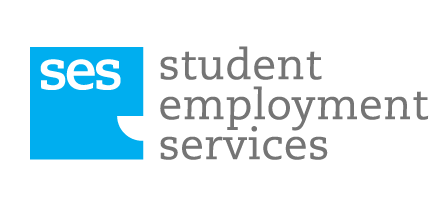Top Ten Interview Tips
Interviews can always be a scary prospect. They’re full of doubt, egotistical nonsense about yourself and of course the inevitable anxiety afterwards, just like your university interview. Well no need to worry, we’ve compiled a list of ten top tips to help you in your next interview:
Dress Well
We start with a fairly obvious one, dress code. It’s a well-known unwritten rule of interviews that turning up in a t-shirt isn’t going to cut it. The best thing to do when going to an interview is to wear a suit (for men) and a shirt/blouse with trousers/smart skirt for girls. If you are told to wear a t-shirt to your interview, adhere to their wishes. There is a common consensuses that you can’t really overdress for an interview, but you can underdress, so if you’ve been asked to wear something specific, it’s best to do so.
Research
It’s always best to research the company that you’re visiting, you probably would have done this when you were writing your application (As you had to do with that dreaded UCAS application). Check out the company website, see if they’ve got an application in the app store and read their about us page. Check out their company directors and check out their recent activities. The longer that you spend researching the more you’ll learn, this will definitely set you apart from the competition, employers have more interest in people who know a lot about their company and what they’re doing. The more you know the better!
Have Your Questions Ready
Employers like people that ask questions. Maybe you’ve got a question on the company’s recent activities and if there is something that you’re not sure of, then ask them, employers are more than happy to answer any questions that you have. Don’t be afraid to ask questions about pay too, after all – it’s the reason you’re there. Questions that go unanswered means you’re not going to get the answer when you need it. There’s no good turning up for the interview, getting the job and then finding out that it’s not what you wanted. Clarify certain points too and don’t be afraid to ask them to explain something if you’re unsure. Employers prefer honesty (See below).
USP
USP stands for Unique Selling Point. This is something about yourself that makes you stand out from the competition. Something about you that no one else could possibly replicate, there is something about all of us that people are unable to recreate and during an interview you’ll want to highlight this as much as possible, but sadly, only you can know what your USP is…
Positives
Be positive, don’t ever talk about a negative subject. If what you’re talking about is negative then say what you need to say but add a positive conclusion to it, something like “ I learned a lot from this experience and this made me a better person because ‘x’”. This will really help you out in the long run because employers really don’t want to add a negative attitude to their business. The more positive you are the more likely people are to hire you.
Don’t Bad Mouth Ex Employers
No we’re not talking about swearing (Although you definitely shouldn’t do that either), no, we’re talking about the same point as before; don’t be negative about previous employment. The last place you worked could be Hell on Earth itself, the very personification of Hell itself, but that doesn’t matter. Don’t at any point discredit your former workplace, you have to remain positive, if in doubt, see the previous point of making a negative point that is outweighed by a positive.
CV – Bringing Your Resume
You’d be surprised just how many people don’t bring their CV to their interview. Most people believe that if they’ve sent it out to companies already then there is no need to bring it along again. Wrong! You should always have it with you, it shows that you’re prepared for the worst if they do forget it, you have a spare copy for them. Also, as strange as it may sound, keep reading it, you might want to familiarise yourself, with previous achievements and quickly highlight what it is that you feel you may need to mention in your interview.
Body Language
Body language is always difficult to get right. What a lot of people do is matchback. Matchback is where you mimic the things your interviewer does, if your interviewer talks slowly then you do the same, or if they cross their legs then you do the same. All of which is fine – but within reason. If your interviewer crosses their arms, it’s best not do that, it shows you’re uninterested. If you aren’t interested in matchback, then we recommend that you sit with your arms open and ready to listen. We also recommend that any points that you may have, make sure to emphasise with your hands. This shows that you’re passionate about what you’re talking about.
Be Honest
Employers really do appreciate it if you are honest about the things that you can and can’t do. Don’t pretend that you know how to use an accounting software if you’ve never even heard of it. Don’t pretend that you have experience in something if you don’t either. It really is just best to be honest, even in the interview too. If you don’t understand something, you won’t lose points for getting them to explain it in more detail; if anything you’ll lose points for lying, because you won’t know exactly what you’re doing when you get to the job. Lying really is something not to do in an interview.
Your Weaknesses
Often interviewers will ask you to list something that is bad about yourself. A common mistake that people make when they’re asked to list their faults is to list a good thing disguised as a weakness. Confused? By this we mean things like “I’m a terrible perfectionist”. It’s a stupid weakness because it not only is you trying and failing quite miserably at being modest, it also shows that you haven’t understood the interviewer’s question, it is actually a fault because it shows that you don’t really hit deadlines on time because you’re spending time faffing about on something that doesn’t need it. The best thing to say is something along the lines of “I tend to get bogged down in detail, but I’m making a real effort with that”, it shows that you have actually understood the question, it’s an issue that you feel needs addressing and you have a solution too.
Just remember that the interviewer wants to see you and they’re there to learn about you and see what you have to say. Just be yourself and you’ll be just fine.
If you’re looking for more student related articles that can help you, then check out University Compare, a university comparison website that compares over 36,000 courses across 425 institutes.
Thanks for reading and good luck!







